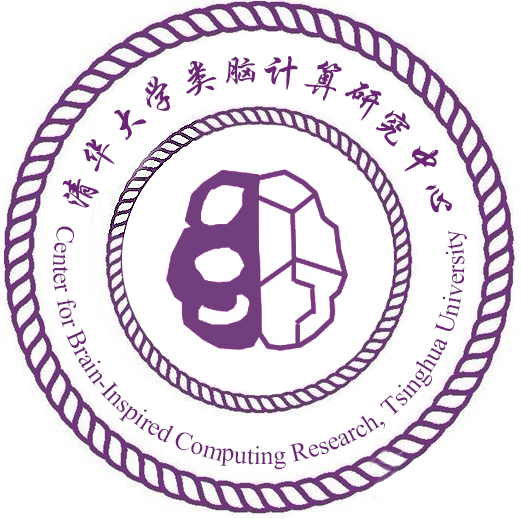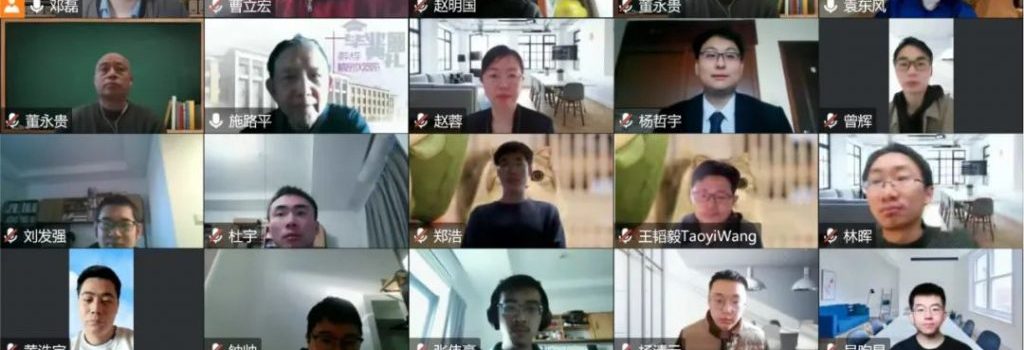Recently, the doctoral thesis defense of Yang Zheyu, a student from the Center for Brain Inspired Computing Research, was held successfully. Due to the pandemic, Yang Zheyu’s PhD. defense was conducted online with remote participation. The defense attracted the participation of numerous faculty members and students from both inside and outside the university and the entire laboratory’s faculty and student body witnessed the birth of one of the new generation of doctors at the Center for Brain Inspired Computing Research.

Yang Zheyu’s student ID photo
The chairperson of Yang Zheyu’s defense committee was Professor Cao Lihong from the Communication University of China. The committee members included Professor Yuan Dongfeng from Shandong University, as well as Researcher Zhao Mingguo, Professor Dong Yonggui, Professor Shi Luping, and Professor Zhao Rong from Tsinghua University. The defense secretary was Assistant Professor Deng Lei from Tsinghua University. Yang Zheyu is also a student under the supervision of Professor Shi Luping.
Let’s witness the excellent performance and outstanding achievements of Yang Zheyu during the defense!
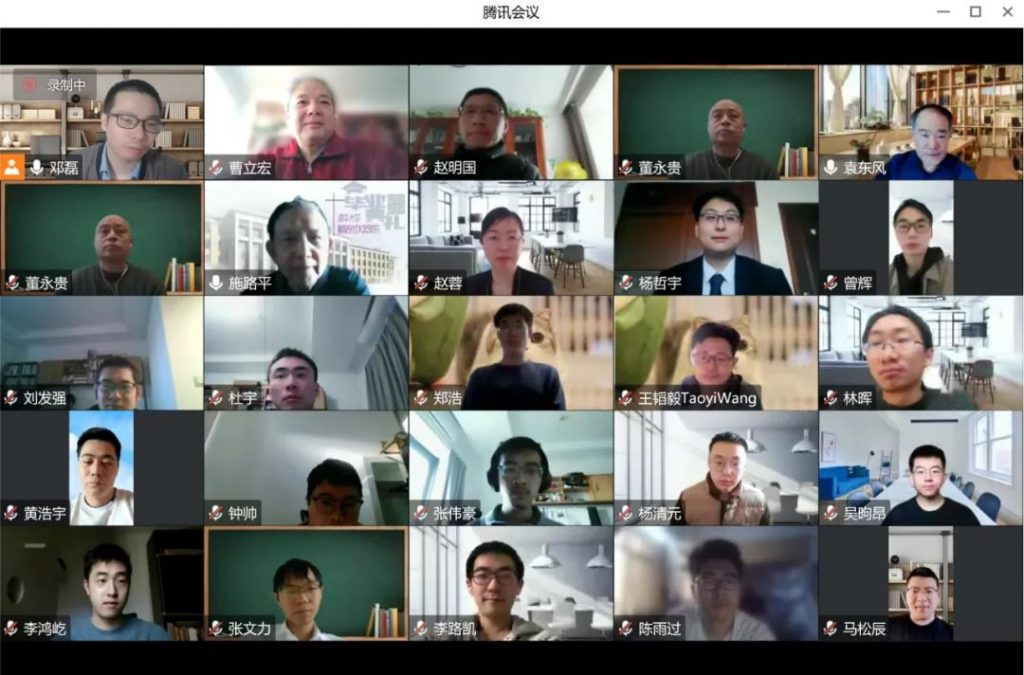
Group photo at the defense session
During his doctoral studies, Yang Zheyu focused on addressing the performance limitations of single perception paradigms. He mimicked the human visual dual-path perception system and researched the new generation of dual-path brain-inspired visual perception paradigms from various perspectives, including theory, algorithms, and chips. This research has laid a solid foundation for achieving scene understanding, autonomous decision-making, self-sustainment, and learning for artificial general intelligence in real-world open environments. The main innovative achievements are as follows:
- Leading the theoretical modeling, prototype design, chip implementation, and testing of the first high-speed, high-dynamic, and high signal-to-noise ratio dual-path brain-inspired perception chip called “TianMouC.” Currently, the chip has been successfully activated, with all functions working properly and demonstrating good performance.
- Addressing the problem of integrating ANNs and SNNs and the lack of dual-path heterogeneous fusion paradigms, a hybrid neural network suitable for multi-path data processing was proposed. This innovation achieved a comprehensive multi-path processing paradigm from perception to representation and processing.
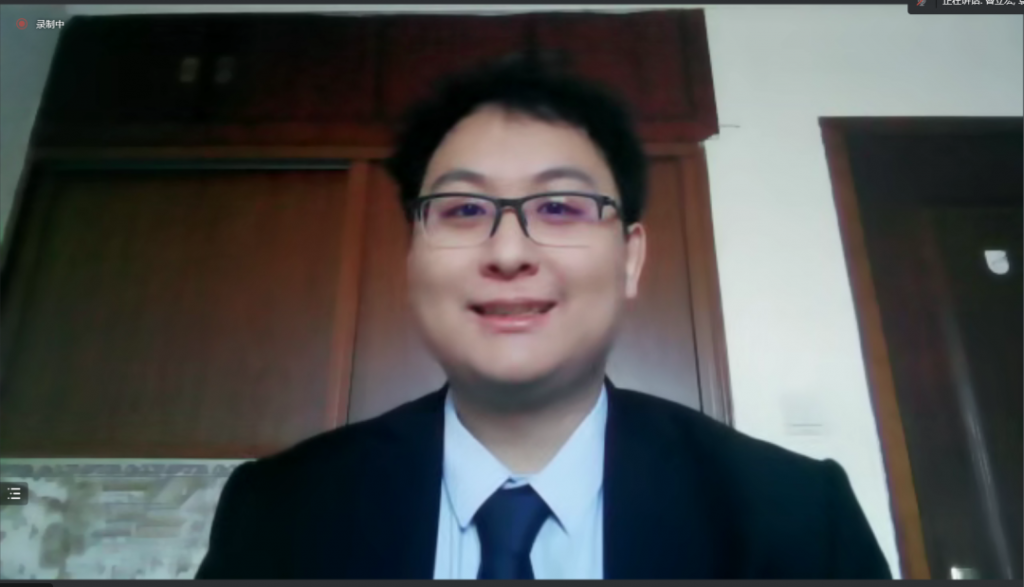
Yang Zheyu’s thesis defense session
During the defense, Yang Zheyu expressed special gratitude to his mentors, Professor Shi Luping and Professor Zhao Rong, for their guidance and support throughout his research journey. In the process of his research, Yang Zheyu built the analog-digital hybrid chip design platform at the Brain-Inspired Computing Center from scratch. Both professors provided meticulous guidance and support at every stage, from theoretical modeling to platform construction and process integration. They allowed Yang Zheyu the freedom to express his individual ideas while offering scientific guidance and caring mentorship.
Yang Zheyu also extended his appreciation to his fellow students who worked diligently and contributed to the design of “TianMouC” chip and hybrid neural networks. The camaraderie, mutual learning, and collective progress on the research path with these fellow students have been invaluable to Yang Zheyu.
During his Ph.D., Yang Zheyu published five SCI papers in renowned international academic journals, including Nature (cover article), Nature Communications (as the first author), and IEEE Journal of Solid-State Circuits. He also applied for 47 patents, including 12 PCT international patent applications, with 19 already granted, including 4 foreign patents. Alongside his research work, Yang Zheyu actively participated in various social activities. From 2017 to 2019, he was involved in organizing the International Student Brain-Inspired Computing Contest for three consecutive years and served as one of the key organizers for the third edition, promoting the dissemination and ecosystem construction of brain-inspired computing.
After completing his PhD., Yang Zheyu will join Lingxi Technology Co., Ltd., a start-up incubated by the Center for Brain Inspired Computing Research at Tsinghua University, where he will be responsible for the comprehensive research and development of brain-inspired perception series chips.
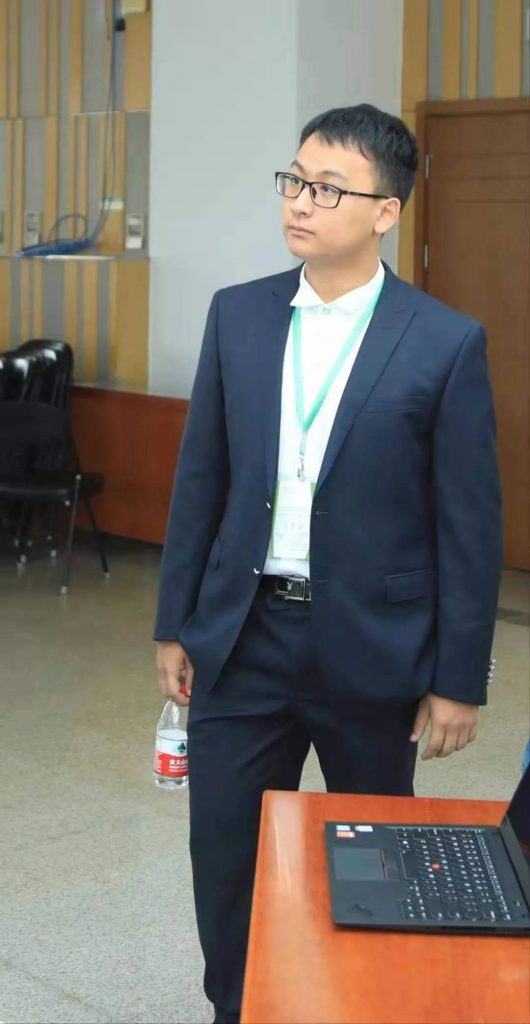
Yang Zheyu’s candid photo.
Finally, after the defense committee’s anonymous voting, it was unanimously agreed that Yang Zheyu passed the doctoral thesis defense and was recommended for the degree of Doctor of Engineering. With this, we wholeheartedly congratulate Yang Zheyu and wish him continuous progress and further success in his future career and life endeavors!
